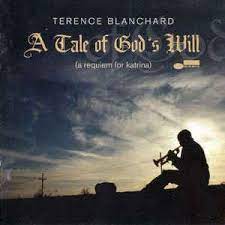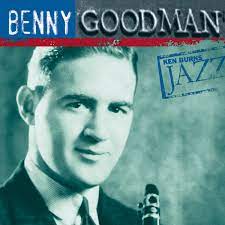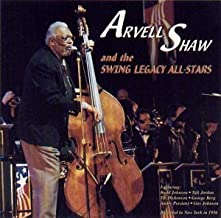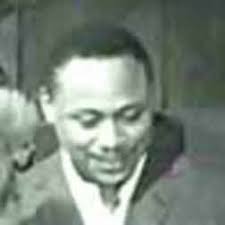
The Quarantined Jazz Voyager
A Tale of God’s Will (A Requiem for Katrina) is a perfect album to listen to as this country continues to play the stupid card and not take this pandemic or its remedy serious. So as those of us who are vaccinated, wearing masks and social distancing. This studio album was recorded in 2007 by the Terence Blanchard Quintet at Conway Recording Studios, Los Angeles, California and Bastyr University, Kenmore, Washington. It was released on August 14, 2007 by Blue Note Records. Blanchard won the Grammy Award for Best Large Jazz Ensemble Album, and was nominated for Best Jazz Instrument Solo for his work on the song Levees.
The album was produced by Blanchard, with Robin Burgess as the associate producer, the engineers were Brian Valentino and Frank Wolf, Seth Waldman was the assistant engineer, and mastering by Gavin Lurssen. Lolis Eric Elie, Blanchard, Brice Winston, Derrick Hodge,and Aaron Parks each contributed to the liner notes.
Spike Lee commissioned Terence Blanchard to compose the score for his 2006 four-hour HBO documentary When the Levees Broke: A Requiem in Four Acts, to show the agony of the aftermath of Hurricane Katrina in 2005. In 2007 Blanchard recorded “A Tale of God’s Will”, which contains The Water, Levees, Wading Through, and Funeral Dirge heard in Lee’s documentary. His mother Wilhelmina survived but lost her Pontchartrain Park home.
Track List | 69:13 All tracks are written by Terence Blanchard except where noted.- Ghost of Congo Square (Blanchard, Hodge, Scott) ~ 3:01
- Levees ~ 8:07
- Wading Through ~ 6:27
- Ashé (Aaron Parks) ~ 8:18
- In Time Of Need (Brice Winston) ~ 7:53
- Ghost Of Betsy ~ 1:58
- The Water ~ 4:07
- Mantra Intro (Kendrick Scott) ~ 3:22
- Mantra (Kendrick Scott) ~ 9:49
- Over There (Derrick Hodge) ~ 7:43
- Ghost Of 1927 ~ 1:38
- Funeral Dirge ~ 5:51
- Dear Mom ~ 3:39
- Terence Blanchard ~ conductor, trumpet, orchestration, producer, liner notes
- Brice Winston ~ soprano sax, tenor sax, liner notes
- Derrick Hodge ~ double bass, bass guitar, liner notes
- Aaron Parks ~ piano, orchestration, liner notes,
- Kendrick Scott ~ drums, percussion, orchestration
- Zach Harmon ~ tabla and happy apple
More Posts: adventure,album,club,genius,jazz,museum,music,preserving,restaurant,travel,trumpet

Daily Dose Of Jazz…
Larry Binyon was born on September 16, 1908 in Urbana, Illinois and his mother shared some of her musical knowledge. By age eighteen he was at the University of Illinois at Urbana-Champaign,playing E flat soprano flute in the school’s concert band as well as flute and piccolo in its first regimental band during the 1926-27 school year.
After spending one year at college by 1927 he was already playing professionally in Chicago as part of Beasley Smith’s band, which also included drummer Ray McKinley and clarinetist Matty Matlock. Flute may have been his first instrument, or his primary one at school, but tenor saxophone became his main instrument for dance bands.
Later that year Binyon joined bandleader Ben Pollack when he returned to Victor’s Chicago studio after a five-month hiatus. History does not reveal him as a bandleader as there is little evidence of him having led his own bands, and no recordings were ever issued under his own name. He certainly has a load of credits as a band member, however, and was adept in both big band and small group settings.
Working a variety of radio jobs during the day, one eye glued open to help recover from the previous night’s late-ending gig.During the 1920s he worked with Irving Mills’ Hotsy-Totsy Gang, Roger Wolfe Kahn & His Orchestra, and Mildred Bailey with the Tommy Dorsey Orchestra to name a few.
His widest exposure on recording is his backup work on records by the Boswell Sisters, Bing Crosby, Billie Holiday, Fats Waller & His Buddies sessions, Henry “Red” Allen, Eddie Condon, Toby Hardwicke, Gene Krupa. Saxophonist, clarinetist, and flutist Larry Binyon passed away on February 10, 1974.
More Posts: clarinet,flute,history,instrumental,jazz,music,saxophone

Daily Dose Of Jazz…
Arvell Shaw was born on September 15, 1923 in St. Louis, Missouri and learned to play tuba in high school, but switched to bass soon after. In 1942 he worked with Fate Marable on the Mississippi riverboats before serving in the Navy from 1942 to 1945. After his discharge he played with Louis Armstrong in his last big band, from 1945 to 1947. He and Sid Catlett then joined the Louis Armstrong All-Stars until 1950, then he broke off to study music. Returning to play with Armstrong in 1952, he performed with vocalist Velma Middleton, and in the 1956 musical, High Society.
He then worked at CBS with Russ Case, did sometime in Teddy Wilson’s trio, and played with Benny Goodman at the 1958 Brussels World’s Fair. After a few years in Europe, he played again with Goodman on a tour of Central America in 1962. From 1962–64 Arvell again joined Armstrong, and occasionally accompanied him through the end of the decade. The Seventies saw him mostly freelancing in New York City.
Bassist Arvell Shaw, who recorded only once as a leader, a live 1991 concert of his Satchmo Legacy Band, kept playing until he passed away on December 5, 2002 in Roosevelt, New York.
More Posts: bandleader,bass,history,instrumental,jazz,music

Three Wishes
When Pannonica inquired about three wishes if given to Art Simmons he answered with his the following:
-
- “Sex.”
- “Music. I can’t think of anything else but those two!Well, there really isn’t anything else but those two. What else is there?”
- “Music takes more than just music: to me it’s God! What is God? All the beauty there is in the world. All the love. God is music, and sex, too! I don’t mean sex the way Americans mean it _ not the rabbit kind. The Americans don’t understand about sex, not the way they do in France. I very soon found that out. Sex and music, and everything that is beautiful, it is all the same thing, really.And that is all that matters.”
More Posts: baroness,history,instrumental,jazz,music,pannonica,piano,three,wishes

Daily Dose Of Jazz…
William Richard Berry was born on September 14, 1930 in Benton Harbor, Michigan. The son of a bass player in a touring dance band, he spent his early years traveling with his parents sleeping in the bass case under the bandstand when he was only a few months old. From the age of five, he took piano lessons at home in South Bend, Indiana. In high school in Cincinnati, Ohio he switched to trumpet, and played in a Midwest band led by Don Strickland, after which he served four years in the Air Force.
He studied at the Cincinnati College of Music and Berklee College of Music in Boston, Massachusetts then played trumpet with the Woody Herman and Maynard Ferguson orchestra. In 1961, he became one of the Duke Ellington orchestra’s first white members. After his working with Ellington, he played with the Thad Jones-Mel Lewis Jazz Orchestra and led his own big band in New York.
In 1965 he joined The Merv Griffin Show, where he remained for fifteen years, moving to Los Angeles, California with Griffin and reforming his group as the L.A. Big Band in 1971. Among the most successful of his own 1978 recording Shortcake, an album of jazz for small groups in the Ellington style. He appeared on many albums by other musicians, including Rosemary Clooney, Scott Hamilton, Jake Hanna, and Coleman Hawkins.
He recorded four albums as a leader and fifty-five as a sideman with Frank Capp, Duke Ellington, Maynard Ferguson, Thad Jones/Mel Lewis, Ruth Brown, Benny Carter, Ray Charles, Chris Connor, Randy Crawford, Bing Crosby, Dave Frishberg, Woody Herman, Earl Hines, Johnny Hodges, Milt Jackson, Irene Kral, Trini Lopez, Johnny Mathis, Gary McFarland, Dave Pell, Herb Pomeroy, Jimmy Rowles, Jack Sheldon, Patty Weaver, and Joe Williams.
Trumpeter Bill Berry passed away on November 13, 2002.
More Posts: bandleader,history,instrumental,jazz,music,trumpet




